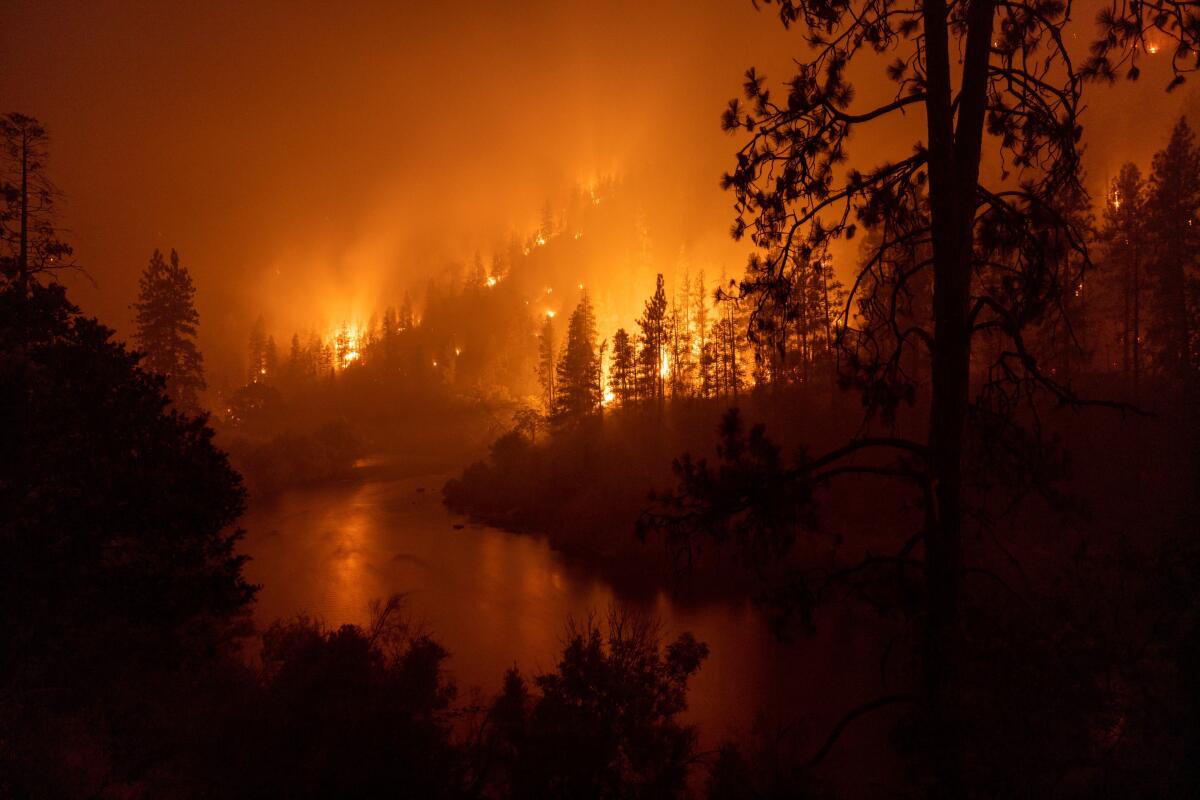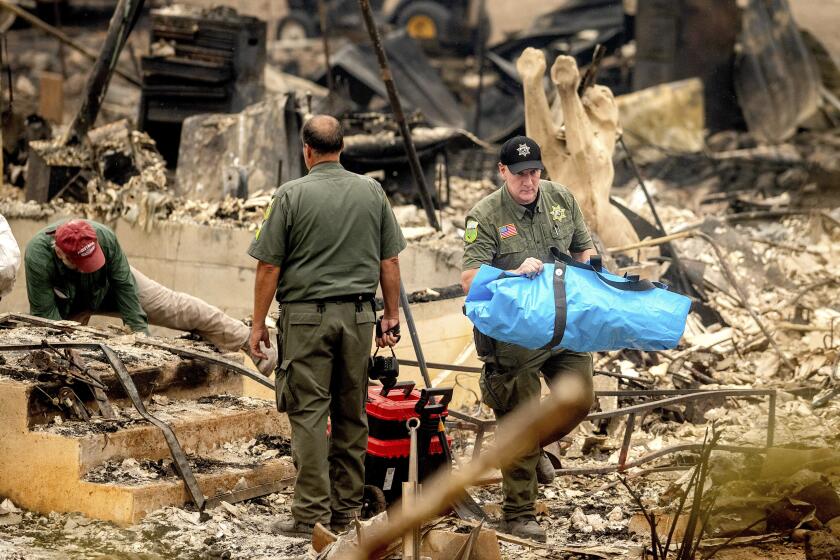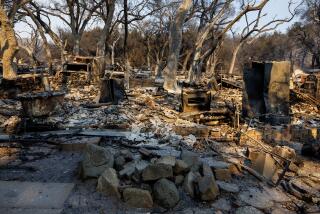Sister of 73-year-old lookout killed in McKinney fire, dozens of others sue utility company

A week after PacifiCorp was sued by Northern California residents who lost homes and property in the McKinney fire, the utility company faces another lawsuit on behalf of dozens of people, including the sister of a longtime Siskiyou County fire lookout killed in the blaze, alleging wrongful death, negligence and other claims.
The lawsuit, filed in Sacramento County Superior Court on Friday, states that the blaze ignited when PacifiCorp’s electrical equipment contacted or caused sparks to fly into surrounding vegetation.
Shirley Shoopman, the sister of 73-year-old fire lookout Kathy Shoopman, the first of the blaze’s four victims identified, is named as a plaintiff along with more than 50 other residents, business owners and others affected by the McKinney fire.
The lawsuit accuses PacifiCorp of “negligently, recklessly and willfully” failing to inspect, repair, maintain and operate the equipment, and failing to manage the vegetation around its infrastructure.
“Overall, these fires don’t need to be our new normal,” said Dave Fox, the lead attorney representing the plaintiffs. “Our utilities can do better. They absolutely can manage their power lines and surrounding vegetation better to keep things safer.”
All four deaths in the McKinney fire highlight how older people are more vulnerable to wildfires and more likely to live where they are commonplace.
The fire ignited July 29 in Klamath National Forest outside Yreka. Extreme heat, low humidity, high winds and bone-dry vegetation fueled explosive growth that saw the blaze tear through the community of Klamath River, where Kathy Shoopman lived.
In the days after the fire started, evacuees told The Times of their harrowing escapes, surrounded by flames and smoke and nearly overtaken by the flaming front.
Four separate times, columns of smoke rose beyond the altitude at which a typical jet flies, penetrating the stratosphere, injecting a plume of soot and ash miles above Earth’s surface and creating a pyrocumulonimbus cloud — a phenomenon that NASA once memorably described as “the fire-breathing dragon of clouds.”
Klamath National Forest officials announced Kathy Shoopman’s death on Aug. 8.
She was a resident of Klamath River for nearly 50 years, the officials said, and was remembered as a talented artist, gardener and animal lover.
Fox, the lead attorney, told The Times that Kathy and her sister, Shirley, were very close.
The sisters didn’t have kids, he said. Their parents had died, and the siblings were major parts of each other’s lives.
As of Friday, the McKinney fire had burned 60,138 acres and was 99% contained. It has destroyed 185 structures, damaged 11 more and left 12 people injured, in addition to the four deaths.
Explosive growth of the deadly McKinney fire was driven by a perfect storm of extreme heat, dry vegetation, steep terrain and erratic winds.
“This wildfire was not the result of an ‘act of God,’ ” according to the lawsuit. “Rather this wildfire was started by sparks from high-voltage transmission lines, distribution lines, appurtenances, and other electrical equipment within PacifiCorp’s utility infrastructure that ignited surrounding vegetation. Despite their knowledge of this extreme fire risk, defendants deliberately prioritized profits over safety.”
The filing comes on the heels of other recent legal action related to the blaze.
Last week, residents in the burn area sued PacifiCorp, alleging that sparks from the utility’s transmission lines and other equipment ignited the fire.
PacifiCorp, which is owned by Warren Buffet’s Berkshire Hathaway Energy holding company, operates an electrical grid across Oregon, Washington and Northern California. The utility company reported to California regulators that it operates a power line that runs near Highway 96 in Siskiyou County where the McKinney fire is thought to have started, the California Department of Forestry and Fire Protection reported.
“Per company policy, we don’t discuss ongoing litigation,” Brandon Zero, a company spokesperson, told The Times on Friday.
Fox, the plaintiffs’ lead attorney in Friday’s lawsuit, said that although he’s representing dozens of people, the case is not a class-action filing.
Each plaintiff has unique claims against PacifiCorp, but they are being brought under one case for the sake of efficiency and in the hopes of holding the utility accountable, he said.
More to Read
Sign up for Essential California
The most important California stories and recommendations in your inbox every morning.
You may occasionally receive promotional content from the Los Angeles Times.













